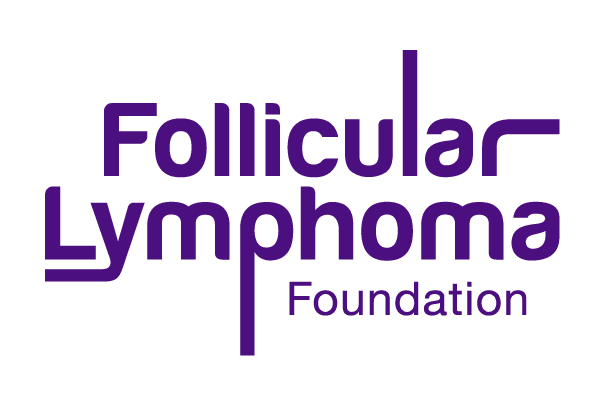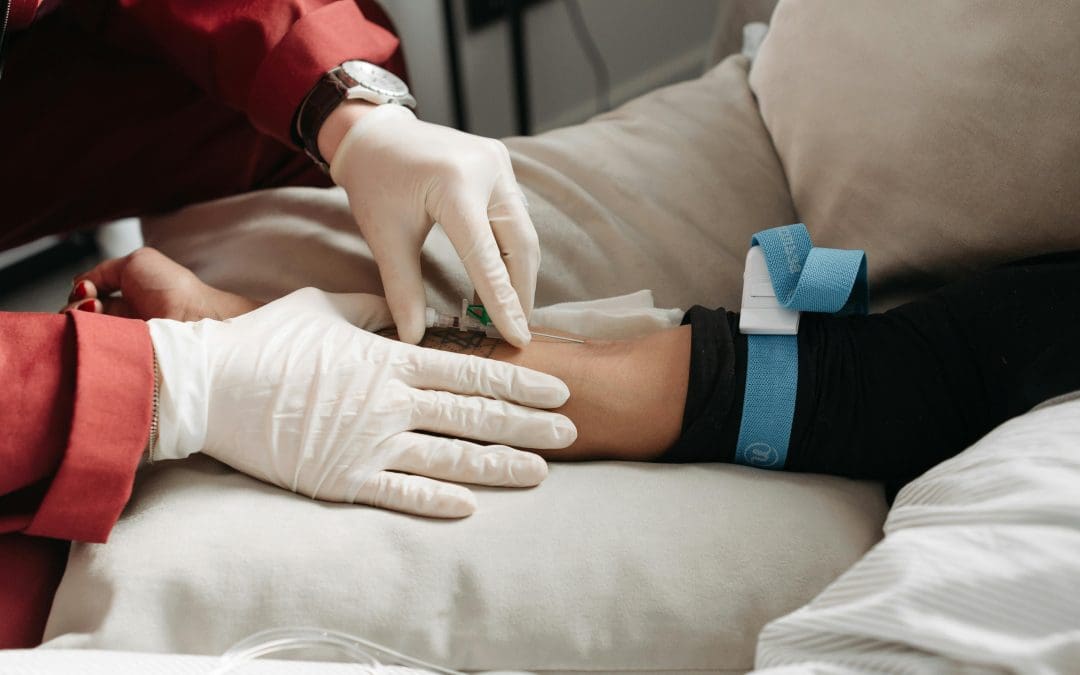Follicular lymphoma is an incurable, but usually slow-growing form of blood cancer that affects the lymph glands.
As with many types of cancer, doctors don’t know what causes follicular lymphoma (FL). Those with immune system diseases such as lupus, HIV, and coeliac disease can be at higher risk of developing follicular lymphoma, but often there is no known cause. There are often no symptoms, either — however, the signs of follicular lymphoma can vary from person to person.
If you’re concerned that you or a loved one may have FL, this guide should give you more information on follicular lymphoma signs and symptoms, as well as the diagnosis process.
Concerns about cancer can cause stress and worry. As a follicular lymphoma charity, the FLF is here to offer support. Please visit Your Support Hub for resources and information. You will also be able to read about other patients’ experiences and join support groups to connect with others on their FL journey.
Follicular lymphoma symptoms
As previously mentioned, follicular lymphoma may present with no symptoms. Other times, people with FL will experience a few symptoms or many. It depends very much on the individual. Please remember that the following symptoms can suggest a serious condition such as cancer, however, the symptoms themselves are very common and could indicate something else altogether — or, indeed, nothing at all. Try not to panic and jump to the worst-case scenario if you notice these signs, and aways consult a medical professional if you are worried.
Painless lymph node swellings
The most common sign of follicular lymphoma is a lump or lumps on your lymph nodes. These may be on your neck just above your collarbone, or on your groin or armpit. Lumps in these areas are most noticeable as the lymph nodes are close to the surface of your skin. Lymph nodes can enlarge for many reasons, most commonly in reaction to infection, So, they may be of concern if there is no obvious cause and do not go away over 1-2 weeks.
However, lymph nodes are also present deeper in the body. Although you won’t be able to see swellings here, you may notice other symptoms caused by the pressure of the swollen nodes on different organs or body parts. The following symptoms are known as ‘B’ symptoms.
Night sweats
Some people find they get extremely hot at night, breaking into sweats that soak their night clothes and bedding.
Unexplained weight loss
If you lose at least 10% of your body weight in six months or less, without changing your diet or exercise regime, this could be a sign of cancer.
Fever
If your temperature is consistently over 38℃ (100.4℉) and there’s no obvious infection or illness causing it, it could be a sign of something more serious, such as cancer.
Other signs and symptoms, not classified as B symptoms, but still possibly lymphoma-related include:
Fatigue
You may find yourself feeling exhausted much of the time, even when you get a full night’s sleep. This will feel a lot more intense and extreme than simply feeling tired.
Difficulty breathing or abdominal pain
Have you noticed any tightness in your chest? Keep an eye on breathlessness and increased difficulty in breathing. The same goes for pain in your lower chest or stomach area.
It’s worth reiterating that presenting one or several of these symptoms is not necessarily a cause for concern — they may not indicate something as serious as cancer. There are many other factors that can cause things such as fatigue, weight loss, and night sweats.
However, if you are worried, the best next step is to speak to your doctor. They can carry out some tests to rule out or diagnose follicular lymphoma.
How do doctors diagnose follicular lymphoma?
If your doctor suspects follicular lymphoma, they will carry out several tests to confirm it. These may include:
- History and physical exam
- A biopsy
- PET or CT scans
- Blood tests
- A bone marrow test
As well as confirming whether you have FL, these tests will help your healthcare team find out your follicular lymphoma stage and grade.
Follicular lymphoma staging and grading
Scans and biopsies will help your doctor determine what stage your FL is at – this refers to the exact location of your cancer and what areas are involved. There are four possible stages, ranging from I to IV. Most FL patients have stage III or IV, because FL is a type of blood cancer and blood moves through the body, so try not to panic if your doctor tells you this.
Follicular lymphoma grading looks at the size and number of cells seen when your biopsy is viewed under a microscope. There are three follicular lymphoma grades. Most are grade 1 or 2 and these, along with grade 3A, are treated in the same way. Grade 3B is not common and requires more detailed discussion with your doctor.
Once your medical team knows what stage and grade your follicular lymphoma is, they can discuss the best course of treatment for you. You can learn more about FL treatment options on our treatment information page.
Support from the Follicular Lymphoma Foundation
If you suspect you or a loved one has cancer, or you’re currently waiting for results, you may be feeling anxious and scared. This is perfectly normal. Everybody will have a different response to the prospect of cancer and a diagnosis.
At the FLF, we have a global community to connect with for support and solidarity. It is our aim to help those with FL live well — and to help find a cure.
For more information about FL, please click here to watch our webinar, An Overview of Follicular Lymphoma, and here to access our Blog page covering an array of topics on all things related to FL.
Disclaimer: The information provided in this blog post is for educational purposes only and should not be considered a substitute for professional medical advice. Always consult with your healthcare provider for personalised guidance and treatment options.
January 2024

